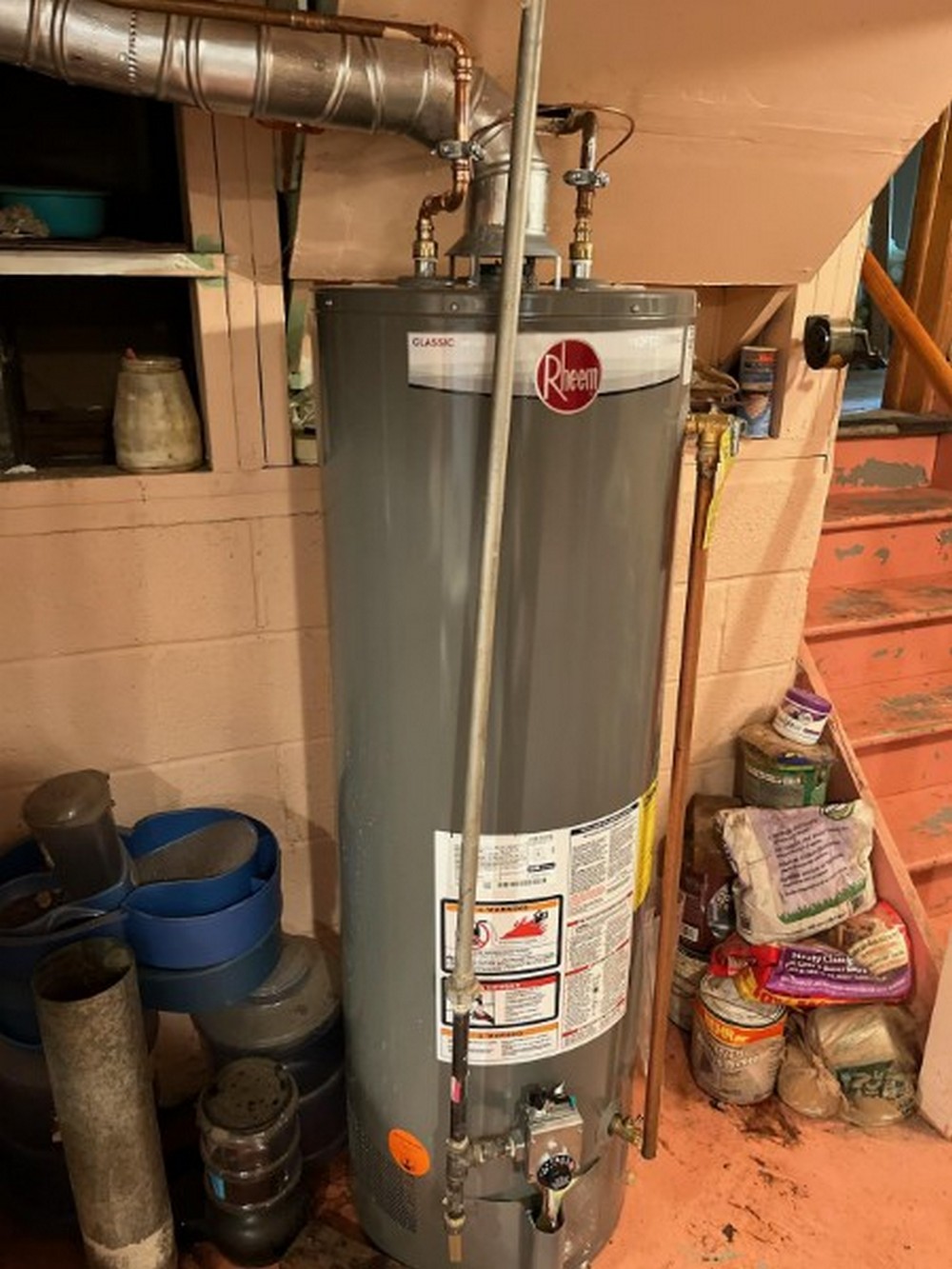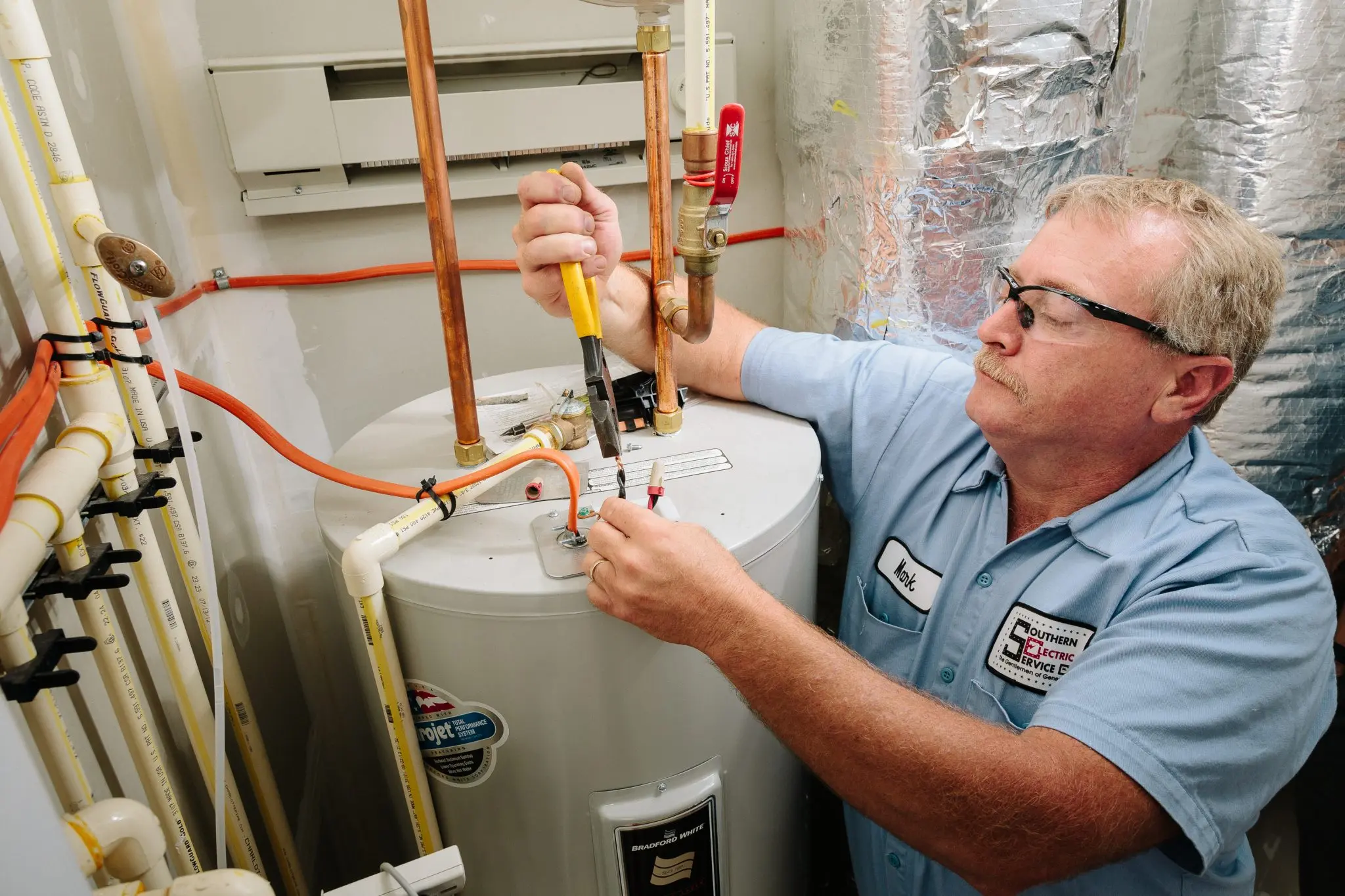Dependable Pipe Repair Solutions to Prevent Expensive Water Damage
Dependable Pipe Repair Solutions to Prevent Expensive Water Damage
Blog Article
Complete Overview to Water Heating SystemInstallation and Replacement
Comprehending the complexities of water heater installment and substitute is vital for house owners seeking to make sure effectiveness and dependability in their warm water supply. From picking the suitable type and size to executing a smooth installation process, a number of variables need to be considered to prevent typical risks. This overview will certainly supply you with the required steps and insights to navigate the complexities of this home improvement job, while also highlighting critical maintenance practices that can lengthen the life of your system. As you check out these facets, you may discover yourself reassessing your present setup and recognizing areas for renovation.
Sorts Of Water Heating Systems
When thinking about water heating system installation and replacement, it is necessary to comprehend the various kinds of water heating units available on the market. The most common kinds include container hot water heater, tankless water heaters, heatpump hot water heater, and solar hot water heater.
Container hot water heater are conventional systems that store a specific quantity of warm water, making them easily offered when needed. They are usually cheaper in advance yet might incur higher power costs in time due to heat loss. On the other hand, tankless hot water heater offer hot water on need, eliminating the demand for storage. They are power efficient and can save space, but their initial costs are commonly higher.
Heatpump water heating units use power to move warmth from the air or ground to heat water, supplying considerable energy cost savings yet calling for more space and details installment conditions. Finally, solar water heating units harness solar energy to warmth water, providing a green choice with possible lasting expense financial savings, although they often require a back-up system for over cast days.
Comprehending these options makes sure notified choices regarding installation and replacement, accommodating particular needs and preferences.
Picking the Right Size
Selecting the appropriate dimension for a water heater is vital to make certain optimal performance and effectiveness. A system that is as well tiny will struggle to fulfill house demands, causing irregular hot water accessibility and raised power intake. On the other hand, an extra-large water heating unit can result in unnecessary power waste and greater energy expenses.
To establish the best size, think about the house's top warm water use. This can be determined based on the variety of occupants and their normal warm water requirements. For instance, a family of four may require a hot water heater with a capacity of 50 to 80 gallons, depending on the usage patterns, such as synchronised showers and laundry.
In addition, analyze the recovery rate, which gauges exactly how promptly a heater can replenish warm water after it has actually been utilized. For tankless designs, concentrate on the flow rate, determined in gallons per min (GPM), to guarantee it satisfies the family's simultaneous demand.

Installation Refine Review

Following, the old device should be disconnected and eliminated, making sure to comply with regional codes and guidelines concerning disposal. Once the old system is out, the new hot water heater can be positioned in location. This step involves connecting the water system lines, making sure that all installations are safe and secure and leak-free.
After developing water links, it's important to link the power supply, whether electric or gas, complying with the maker's instructions meticulously. When all links are made, the system should be loaded with water, and the power can be transformed back on. Ultimately, it's essential to look for leaks and make sure the hot water heater is operating correctly prior to completing the setup process.
Typical Installation Errors

Another constant mistake is neglecting to comply with regional codes and guidelines. Failing to adhere to these standards can not only lead to safety and security risks but might additionally result in pricey penalties or the demand for expensive reinstallation.
Falling short to secure connections or using the wrong kind of fittings can lead to leakages and water damages. By preventing click here for more info these typical setup mistakes, house owners can guarantee their water heater operates safely and successfully, making best use of performance and longevity.
Upkeep Tips for Durability
Correct maintenance of a hot water heater is essential for its longevity and optimal efficiency. Normal assessments and servicing can avoid costly fixings and extend the home appliance's life expectancy. Begin by examining the temperature setup; it should usually be set in between 120 ° F and 140 ° F for ideal power efficiency and safety and security.
Every six months, flush the storage tank to eliminate debris buildup, which can impair heating efficiency and create deterioration. To do this, switch off the heating unit, connect a hose pipe to the drain shutoff, and let the water run up until it is clear.
Anode rods ought to be examined annually and changed when they are corroded. These poles help stop container rust by attracting harsh elements in the water.
In addition, inspect the pressure safety valve on a regular basis to guarantee it is functioning correctly. This valve is crucial for stopping extreme stress accumulation within the storage tank.
Last but not least, think about setting up a specialist upkeep check every few years for thorough examinations and servicing. By adhering to these upkeep tips, homeowners can substantially improve the efficiency, safety, and lifespan of their hot water heater, ensuring reputable warm water for many years to find.
Final Thought
In final thought, proper installment and upkeep of water heaters are critical for ensuring performance and durability (gas leak repair). Selecting the suitable kind and dimension, sticking to installation guidelines, and staying clear of usual errors substantially add to optimal efficiency. Routine maintenance checks and specialist maintenance assistance suffer functionality and protect against pricey repair work. By comprehending these vital elements, home owners can achieve a trustworthy hot water supply while try this out lessening potential issues associated with hot water heater operation.
Understanding the ins and outs of water heating system installment and substitute is vital for homeowners seeking to guarantee performance and reliability in their warm water supply.Tank water heaters are conventional systems that save a certain quantity of hot water, making them readily available when required. In comparison, tankless water heaters supply hot water on need, getting rid of the need for storage. Selecting a water heating unit that is either too little or too large can lead to ineffectiveness, resulting in poor hot water supply or excessive power usage.
By comprehending these important aspects, house owners can attain a dependable hot water supply while reducing possible problems related to water heating unit operation. gas leak repair.
Report this page